Learn English
Eat Smart, Learn English Better: Nutrition for Your Brain
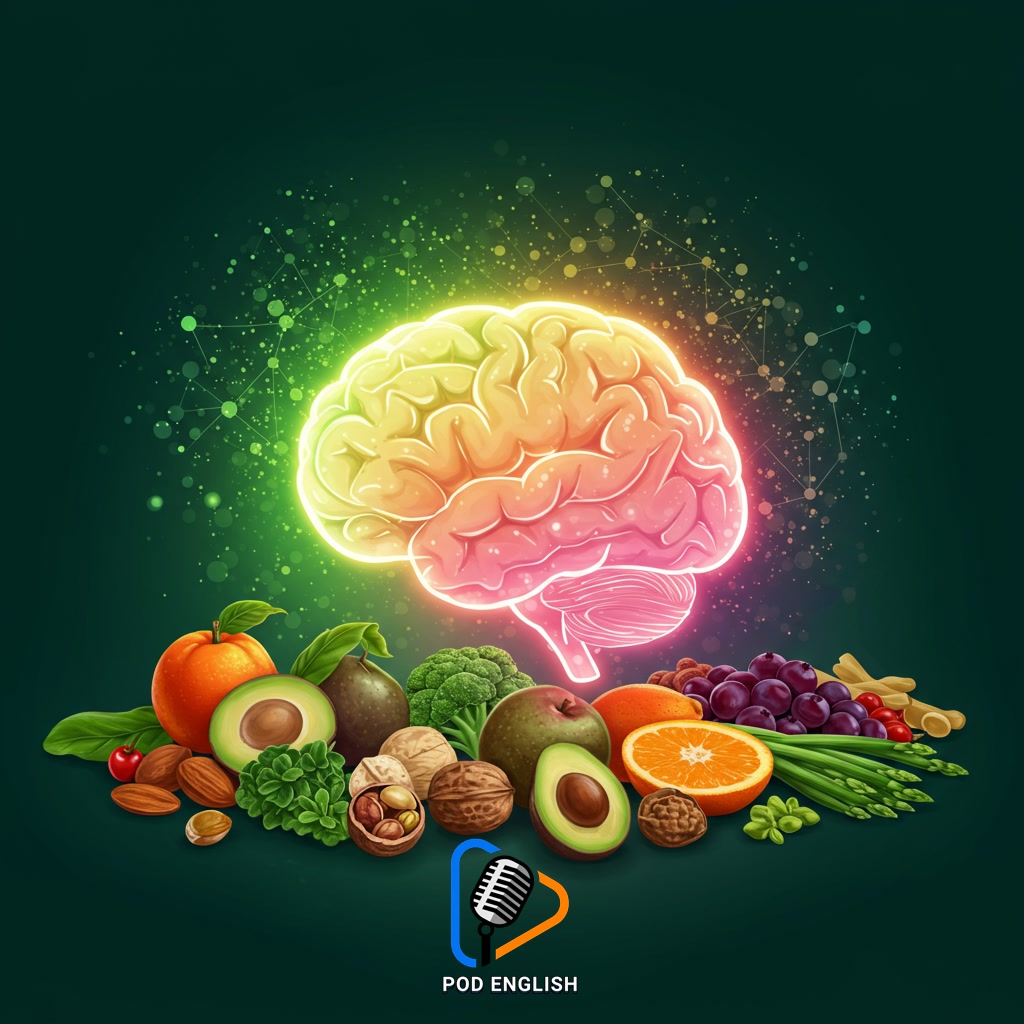
This content explores the vital connection between smart eating habits and enhanced brain function. It highlights how specific nutrients are crucial for cognitive processes like focus, memory, and information retention. By optimizing your diet, you can potentially improve your brain’s capacity, making the process of learning English more effective and efficient.
Table of Contents
- Section 1: The Brain-Boosting Power of Food: An Introduction
- Section 2: Key Nutrients for Cognitive Function and Learning
- Section 3: How Your Diet Directly Impacts Learning English
- Section 4: Best Foods to Eat for Sharper Focus and Memory While Learning English
- Section 5: Foods and Habits to Avoid for Better Brain Performance
- Section 6: Practical Nutrition Tips for English Language Learners
Section 1: The Brain-Boosting Power of Food: An Introduction
Welcome to our journey exploring how the food you eat can significantly impact your brain’s performance. Just like your body needs fuel to run, your brain, the command center for learning and thinking, requires specific nutrients to function optimally. This introductory section sets the stage, highlighting the fundamental connection between smart dietary choices and enhanced cognitive abilities. We’ll discover that feeding your brain the right way can make a real difference in your ability to focus, remember information, and process new knowledge, which is incredibly valuable when you’re learning a new language like English. Think of your diet as a powerful tool to unlock your brain’s full potential.
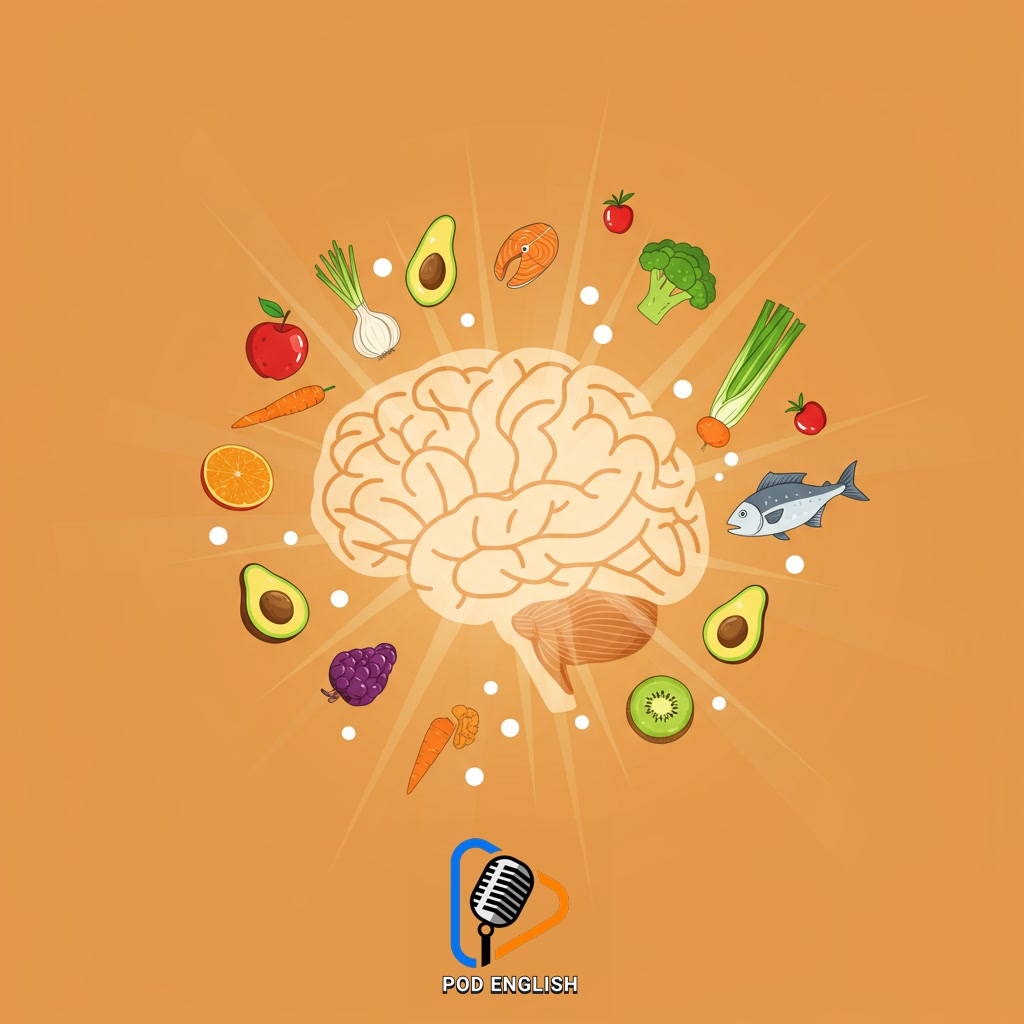
The Brain-Boosting Power of Food: An Introduction
Section 2: Key Nutrients for Cognitive Function and Learning
Building on the idea that your brain needs quality fuel, let’s look at some key nutrients that are particularly vital for cognitive function and learning. Omega-3 fatty acids, found in fish and nuts, are essential building blocks for brain cells and support communication between them, crucial for memory and focus. B vitamins play a role in energy production and nerve function, helping you stay alert. Antioxidants from fruits and vegetables protect your brain from damage, maintaining its ability to process information efficiently. Iron is important for carrying oxygen to the brain, while zinc supports nerve signaling. Ensuring you get enough of these nutrients through a balanced diet can significantly enhance your brain’s capacity to absorb and retain information, making your English learning journey smoother.

Section 3: How Your Diet Directly Impacts Learning English
Building on the importance of specific nutrients, let’s explore how your daily meals directly influence your ability to learn English. Think of your brain as a high-performance engine that requires the right kind of fuel. A diet rich in essential vitamins, minerals, and healthy fats, like the Omega-3s we just mentioned, helps maintain optimal brain function. When your brain is well-nourished, you can concentrate better during English lessons, retain new vocabulary and grammar rules more easily, and process complex sentence structures with greater clarity. Conversely, poor nutrition can lead to fatigue, difficulty focusing, and reduced memory capacity, making the challenge of mastering a new language significantly harder. Therefore, making conscious food choices is an active step towards enhancing your cognitive tools for effective English learning.
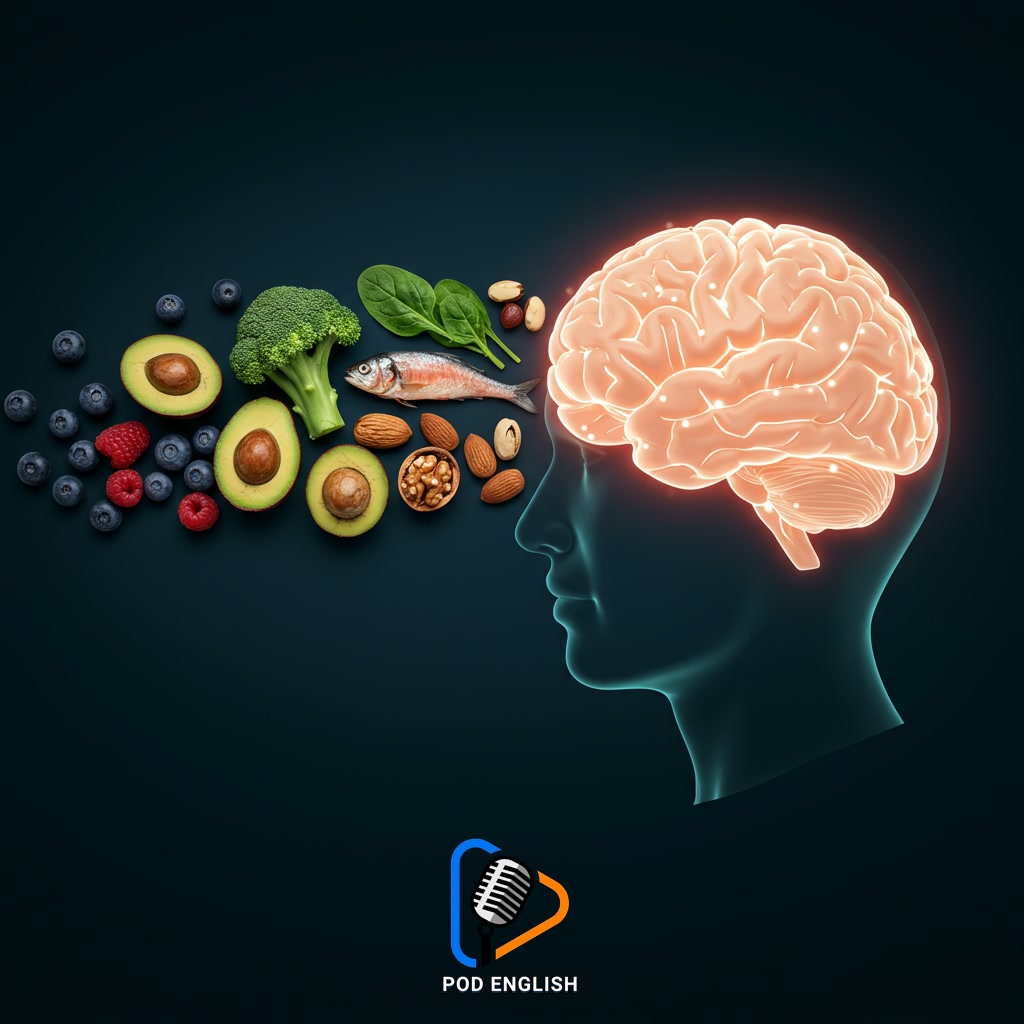
How Your Diet Directly Impacts Learning English
Section 4: Best Foods to Eat for Sharper Focus and Memory While Learning English
Building on the idea that your brain is a high-performance engine, it needs the right kind of fuel, especially when you’re tackling a complex task like learning English. Certain foods are particularly effective at boosting brain function, helping you stay focused and retain new information. Aim to include sources of Omega-3 fatty acids, found in fatty fish like salmon, which are vital for brain cell health. Antioxidant-rich berries, such as blueberries, can protect your brain and improve memory. Whole grains provide a steady release of energy, crucial for sustained concentration. Don’t forget leafy greens like spinach, packed with vitamins, and nuts and seeds, which offer healthy fats and nutrients. Making these smart food choices can significantly enhance your ability to concentrate on your English studies and remember what you’ve learned.
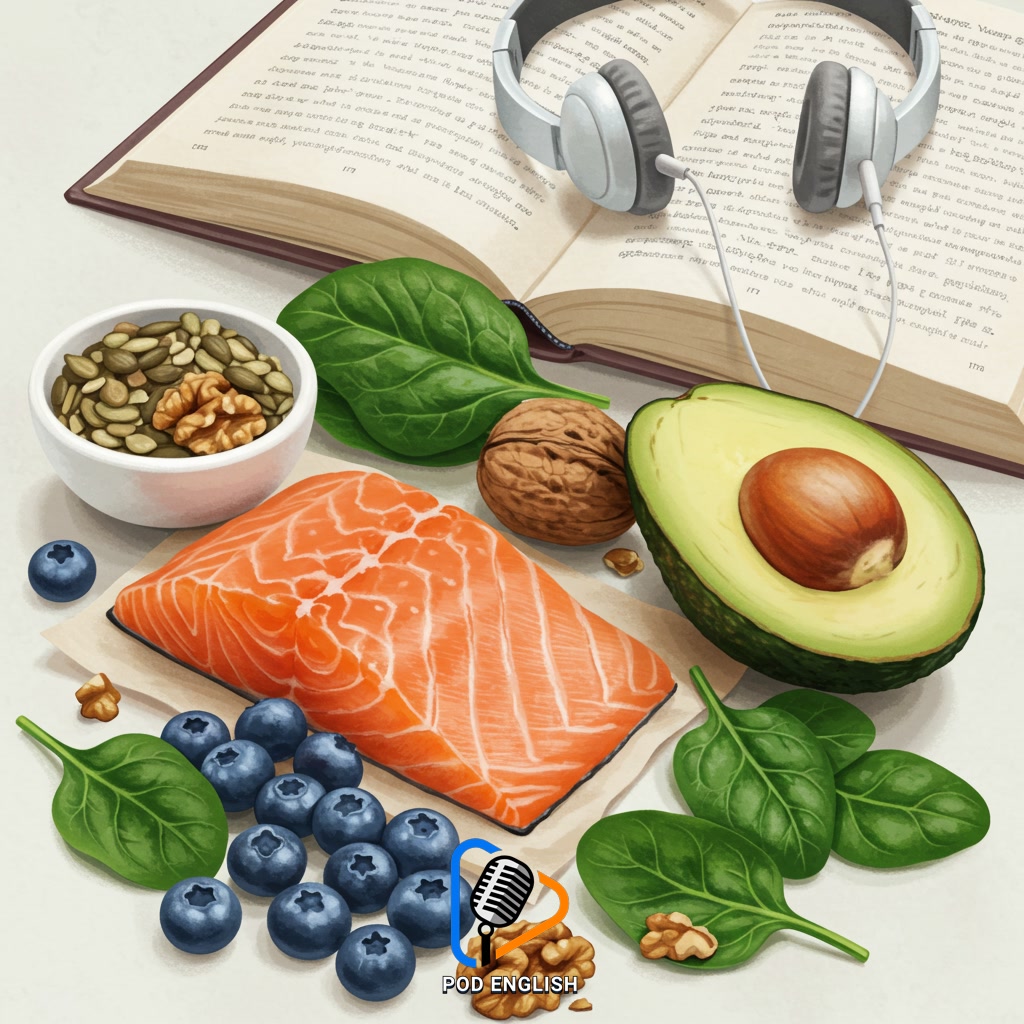
Best Foods to Eat for Sharper Focus and Memory While Learning English
Section 5: Foods and Habits to Avoid for Better Brain Performance
Building on the idea that your brain is a high-performance engine, it needs the right kind of fuel, especially when you’re tackling a complex task like learning English. Certain foods are particularly beneficial, but it’s equally important to know what to avoid. Consuming excessive amounts of sugary drinks, processed snacks, and foods high in saturated and trans fats can negatively impact your brain’s ability to focus and retain information. These items often lead to energy crashes and inflammation, hindering cognitive function essential for effective learning. Furthermore, habits like skipping meals, especially breakfast, or relying heavily on caffeine and alcohol can disrupt your body’s energy levels and sleep patterns, both crucial for memory consolidation and learning. By consciously limiting these detrimental foods and habits, you create a better environment for your brain, making the challenging process of absorbing and using English vocabulary and grammar much more effective.
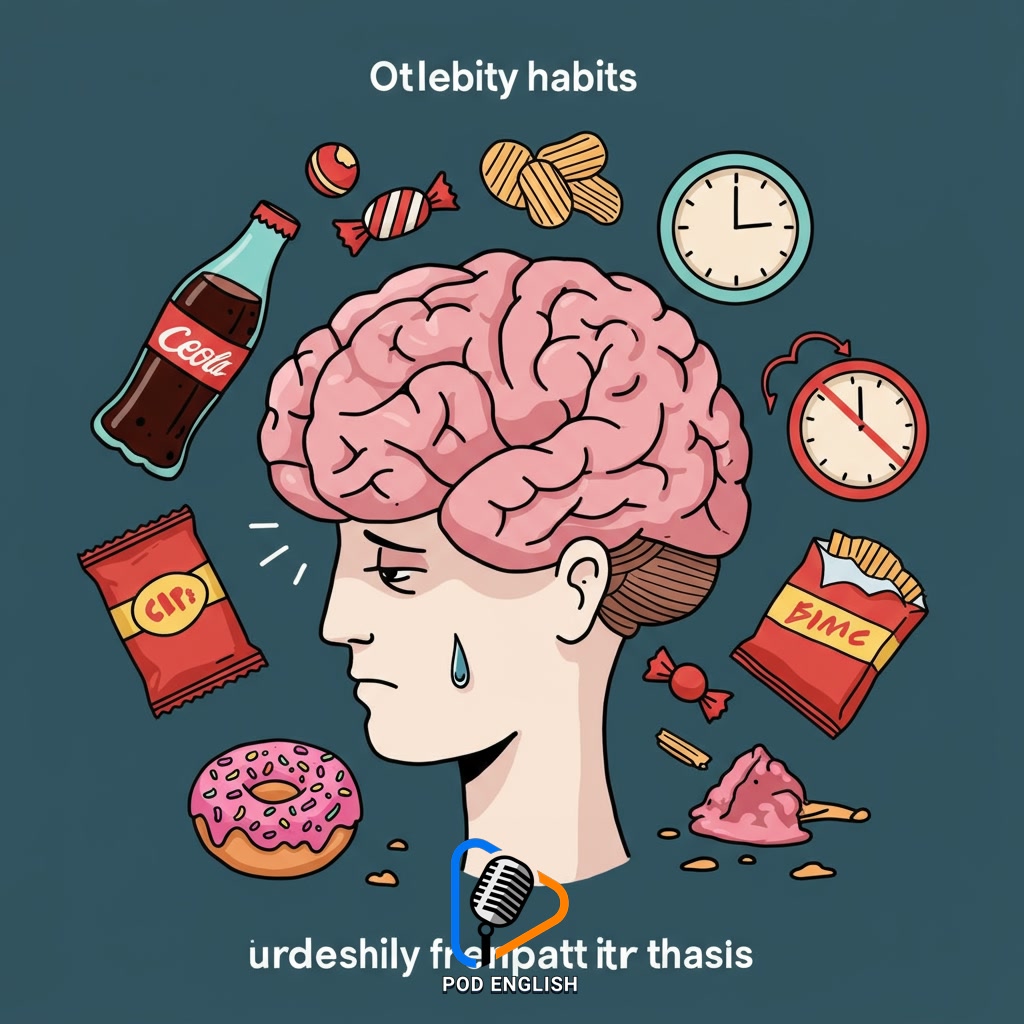
Foods and Habits to Avoid for Better Brain Performance
Section 6: Practical Nutrition Tips for English Language Learners
To effectively fuel your brain for the demanding task of learning English, focus on consistent, smart choices. Begin your day with a balanced breakfast containing complex carbohydrates and protein for sustained energy throughout your study sessions. Staying adequately hydrated by drinking water regularly is crucial, as even mild dehydration can impair focus and cognitive function. Incorporate ‘brain foods’ into your diet, such as fatty fish rich in Omega-3s, berries packed with antioxidants, and nuts and seeds providing essential nutrients. These foods support memory retention and concentration, vital skills when mastering new vocabulary or grammar rules. Limit processed snacks and excessive sugar, which can lead to energy crashes and hinder your ability to concentrate during practice or lessons. By making these practical dietary adjustments, you can optimize your brain’s performance, making your English learning journey smoother and more productive.
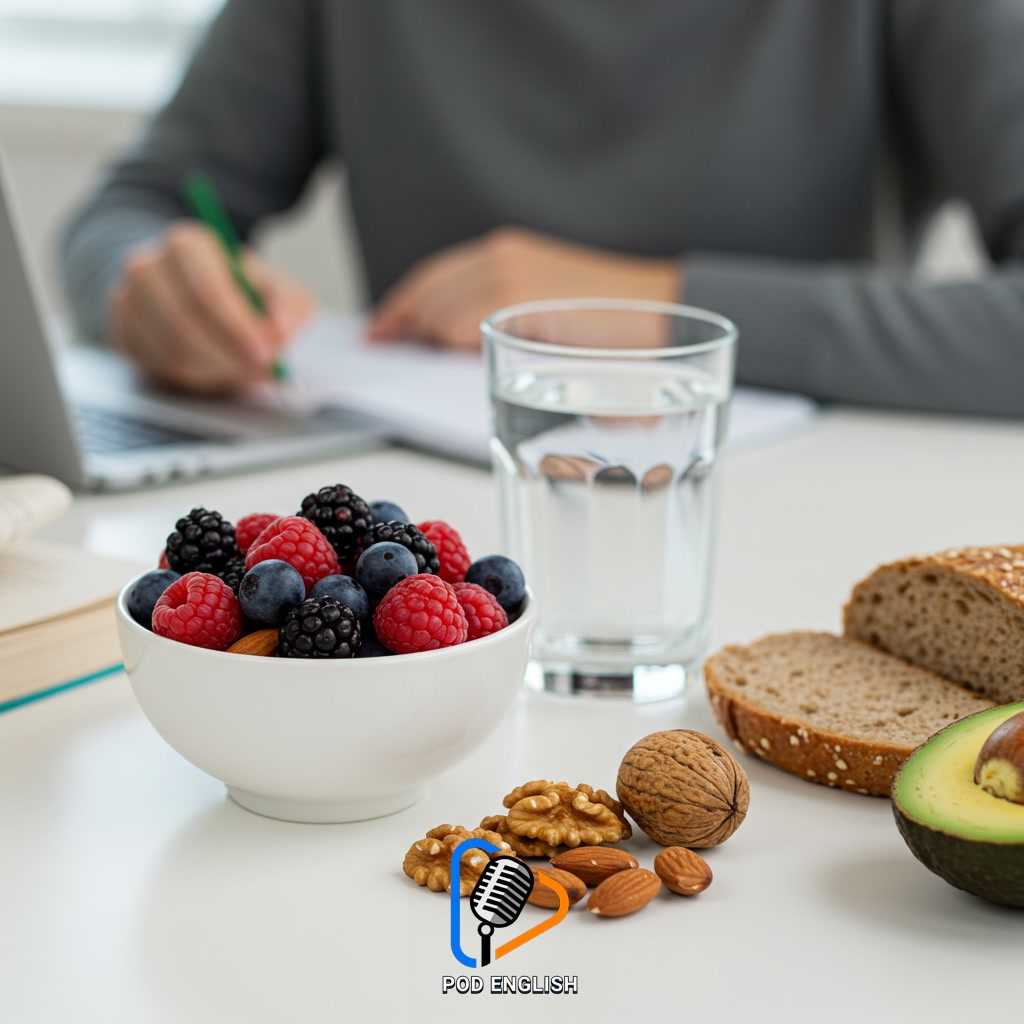
Practical Nutrition Tips for English Language Learners













